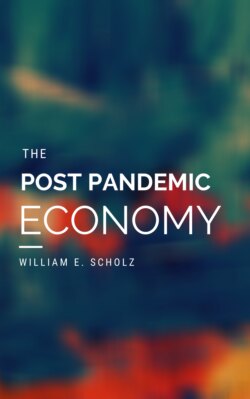Читать книгу The Post Pandemic Economy - William E. Scholz - Страница 17
На сайте Литреса книга снята с продажи.
Increased Responsibility For Private Philanthropy
ОглавлениеThere is a relationship between the Economy, Economic Development, and Private Philanthropy that must be rearranged. In today's economy, at all levels, Economic Development agencies are a tool to seed new initiatives based on the agenda of elected officials. However, the next decade of Economic Growth will require growth in the leanest of circumstances. The inefficiencies of this nexus will become glaring likely ensnaring politicians who have championed these efforts in the past.
Currently, Private Philanthropy operates as a tool to leverage influence within economic development initiatives vis-a-vis political influence. Washington lobbying is built upon these relationships as is the economic development activity of local economies. We must re-arrange these relationships so that Private Philanthropy is investing directly into the economy through investment instead of into programming through economic development third parties.
We are not here to judge the efficiencies of economic development programming. Though fleeting and ephemeral, these programs can seed new ideas and raise the awareness of new initiatives to the general public. These initiatives can also attract additional investment into needed programming. However, the hole left by the coronavirus will likely create a political atmosphere that views one-off economic development programming as a waste of precious resources.
Private philanthropy must become investors in economic growth through investment into private business and sustainable economic activities. Rather than invest in economic development initiatives, which can have high overhead costs, private philanthropy should increase its focus on providing grants directly to entrepreneurs and small business or co-investing into large infrastructure projects.
How can philanthropy be reformed? We offer two solutions.
1 Repurpose existing economic development infrastructure into public-private partnerships that can both take ownership of equity into firms and development projects AND invest on behalf of private philanthropy. Currently, private philanthropy operates through Foundations. While Foundations have proven successful at launching new and varied programming, for the foreseeable future, Foundations must join in the renovation efforts directly. Foundations can do this by requiring return on investment from economic development partners who in turn own equity in firms and projects.
2 This is not unlike the initial efforts behind Opportunity Zones, which encouraged private investors to work with public or quasi-public resources via a tax incentive. Opportunity Zones not only must now be applied to the entire economy, but the intention of Opportunity Zones must be applied in a greater manner to firm-level investment. Economic development agencies must serve like investment banks for local economies in the formation of capital. Philanthropic partners, working with local partners, can rapidly deploy capital to American Renovation Efforts. It is very important that financial licensing and accompanying red tape be removed immediately!
Private philanthropy currently exists as a weak institution, but one that excels in an environment of hypothesis. Foundations try new ideas in partnership with non-profit agencies and Government sponsors. In the post-pandemic Economy, we need Private Philanthropy to create wealth rather than test new ideas. In doing so, we can ensure that both local economies and large-scale infrastructure projects flourish.
Debt Jubilee For State And Local Municipalities. The call for Debt Forgiveness will be deafening as the impact of the Pandemic hits the world's economy and as workers return to their employment. The call will likely occur across sectors and will not stop when the debt of one sector is finished.
We are only advocating for the prioritization of Local and State Governments in debt forgiveness. The debt jubilee for Local and State Governments must include the following:
1 All debt, owned by State and Local Governments, except for debt owned in pensions, health care, and to foreign organizations. Governments are uniquely positioned to identify and validate debt sources and follow direct guidance from the United States Federal Government and the United States Congress.
2 A Debt Jubilee must require that States do not increase entitlement spending in any way. The American People have felt betrayed in the past by economic bailouts that served special interests or specifically Wall St., before Main St. This is not a time to play politics! A debt jubilee applied only to Local and State Governments is the fairest way to navigate a necessity fraught with special interests. If US Congress appeals to special interests in how a debt jubilee is navigated, they risk further alienating an American public already weary of bail-outs.
The debt jubilee is not ideologically necessary, but necessary in the wake of the destruction caused by Hurricane coronavirus. The coronavirus has cratered a hole in the United States' and World's economy that will take decades to remedy if we move fast. We must also move fast so that the millennial generation does not become a "lost generation."
The millennial generation is the first to be raised on the Internet and is far more talented than their career trajectory would suggest, after experiencing two depressions in thirteen years. We must work as quickly and urgently, as humanely as possible, to renovate the American economy and create The New, Global Economic Order that is free from the influence of debt-based central banking and finally gives power to the worker.
